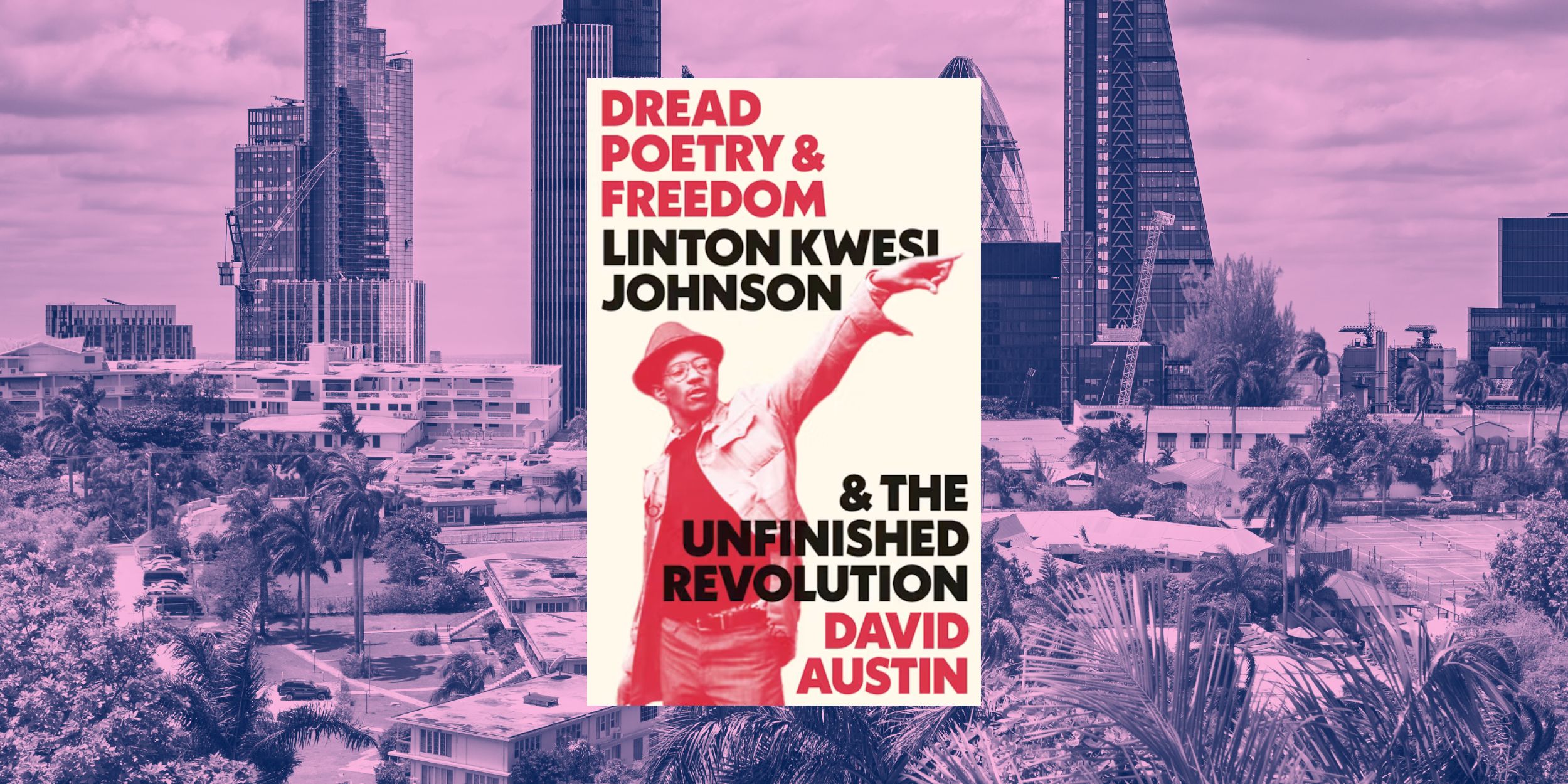
David Austin’s Dread Poetry and Freedom is an evocative exploration of the revolutionary potency of poetry through the lens of one of its most iconic practitioners, Linton Kwesi Johnson (LKJ). More than just a biography, this book is a testament to the enduring connection between art, activism, and liberation, making it a perfect addition to the literary canon of cultural and political critique.
Austin sets out to contextualise Johnson’s work not only as a pioneer of dub poetry but also as a political force. By doing so, the book captures the tension between artistic expression and political struggle, particularly within the lived realities of Black communities in Britain. Johnson’s poetry, imbued with the rhythms of reggae and the struggles of the working class, speaks to both the immediate and the universal, which Austin interprets with sensitivity and academic rigour.
What sets Dread Poetry and Freedom apart is Austin’s ability to intertwine LKJ’s poetry with broader historical, social, and philosophical discourses. The analysis delves into the colonial and post-colonial experiences that shape Johnson’s voice, positioning his art as both a reflection of and a resistance to systemic oppression. Austin draws on thinkers like C.L.R. James and Frantz Fanon, creating a richly layered narrative that situates Johnson’s work within a global revolutionary tradition.
This book is as much about LKJ as it is about the power of art to challenge, disrupt, and imagine new futures. Austin’s prose is thoughtful and incisive, balancing poetic admiration with critical analysis. For readers unfamiliar with dub poetry, the book provides a compelling entry point, highlighting the fusion of language, sound, and political urgency that defines the genre. For fans of LKJ, it offers a deeper understanding of the man behind the verses and the worlds he seeks to dismantle and rebuild.
In true PLEB spirit, Dread Poetry and Freedom reminds us that art and activism are not separate endeavours but intertwined paths toward liberation. Johnson’s poetry, described by Austin as “the poetic distillation of resistance,” resonates far beyond the shores of Britain, speaking to the shared struggles and dreams of the oppressed worldwide. It is this universality that cements his legacy as a poet of the people and a revolutionary voice.
Dread Poetry and Freedom is essential reading for anyone interested in the intersections of art, politics, and history. It challenges us not only to listen but to act, to feel the “dread” and seek the “freedom.” For those looking to deepen their understanding of how poetry can be a weapon and a salve, this book is an indispensable guide.